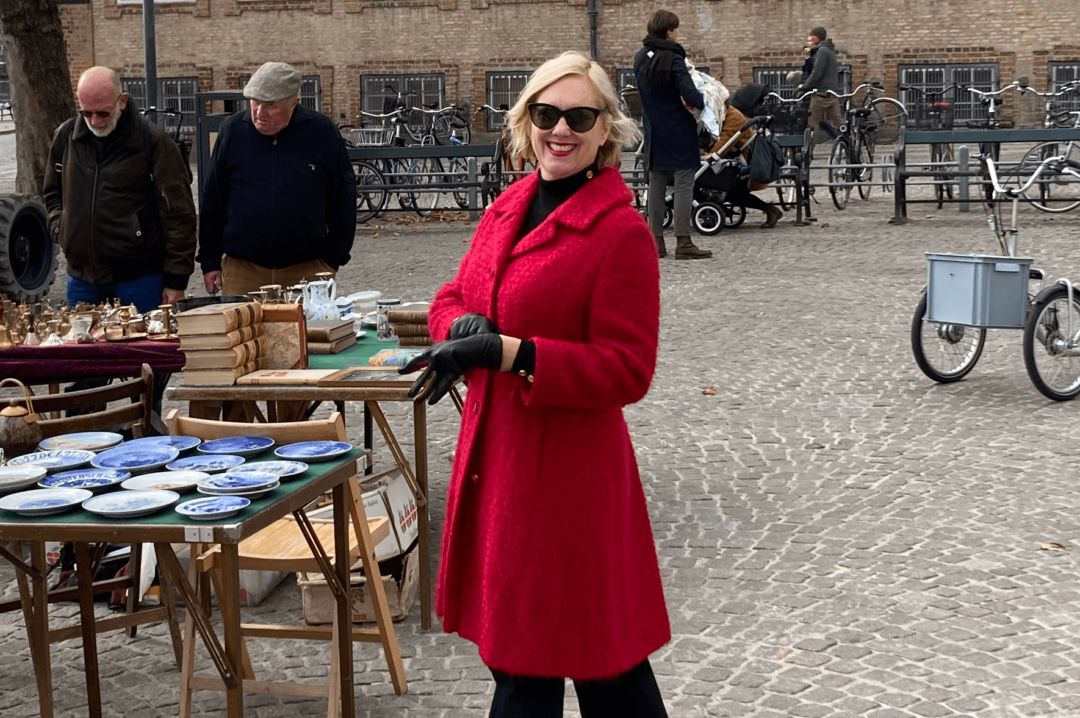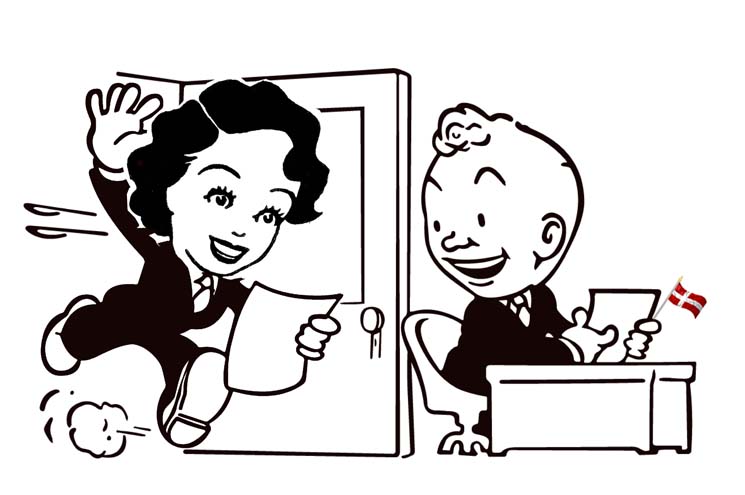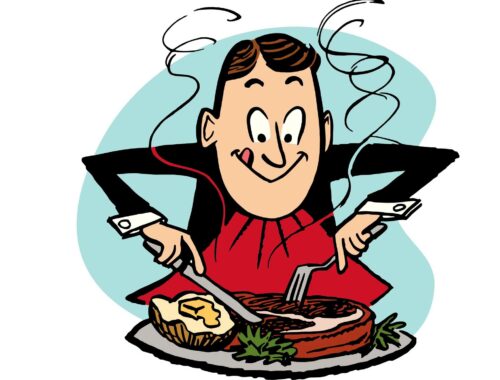I missed a gala opening last week. It wasn’t of an opera or a nightclub, but of Copenhagen’s big new Genbrug Center, a place set up by the local government where people can leave stuff they don’t want and other people can take it for free.
The party seems to have been a hit. I saw photos of people leaving with chic leather chairs, kitchenware, lumber for building, even an electric guitar.
There is a network of these “genbrug” (recycling) stations all over all over the country, 13 in Copenhagen alone, full of lovely things that people simply can’t use any more.
Maybe they bought a new one, maybe they’re cleaning out the basement or a storage locker, maybe they’ve fallen in love and are moving in with someone who already has a toaster.
Second hand goods are mainstream
While second-hand goods are considered poverty markers in many cultures, they’re mainstream in Denmark.
The Danes are practical people – why should something be thrown out when it can be used again? And their passion for sustainability means it’s cool to reuse something that already exists instead of manufacturing something new.
My daughter’s generation of teenagers likes vintage clothing in part because it doesn’t have the environmental impact of fast fashion.
Free your stuff
The second-hand economy is everywhere in Denmark. Many apartment complexes have special areas where tenants can leave things they no longer use for other tenants to pick up.
In the summer, many neighborhoods set up flea markets where children can sell the dolls and toy trucks they no longer play with to younger kids.
There are Facebook groups like “Free Your Stuff Copenhagen” where you can give away things you don’t need and get stuff for free; I once saw a company that had gone out of business giving away all of its almost-new office furniture. “Just come pick it up” they said.
And charity shops are everywhere in Denmark, from the biggest cities to the most run-down towns. Røde Kors (known in English as Red Cross), Kirkens Korshær (known in English as the Salvation Army), Red Barnet (known in English as Save the Children), and the entirely Danish Folkekirkens Nodhjælp have locations all over the country.
You’ll often find the nicest stuff in the richest parts of town, but not always.
Heirlooms for sale
While there are some good vintage clothing shops in Denmark, particularly in student areas, the real heat in the Danish second-hand economy is housewares.
I can say that my own home is a mix of new and second-hand items, including a beautiful 1950s lamp and a bedside table I got when a former neighbor died. His family cleaned out the mementos that had meaning to them, and then just told neighbors to take what they wanted.
Classic items like Georg Jensen silver bowls are often family heirlooms, but if someone dies without heirs or the heirs don’t want the items because they’ve gone out of fashion, they end up on the second-hand market.
If you like porcelain tea sets, perhaps Royal Copenhagen, or high-end silver cutlery, you’ll find a vast selection at second-hand shops in Denmark. New generations often don’t want them because they can’t go in the dishwasher.
DBA.dk, “the blue paper”
The real center of the second-hand economy in Denmark, however, is DBA.dk, or Den Bla Avis, the Blue Newspaper. It’s a Danish institution, now entirely online, where thousands of second-hand items from all over Denmark are for sale. It’s owned by eBay.
I recently decided I would like an antique cigar box to store some of my electrical chargers, and I found plenty for sale on DBA, from the mundane to the collectable.
DBA also has a dark side, in that it is where a lot of the stolen goods in Denmark turn up. If your bike is stolen in Denmark, people generally tell you to look for it on DBA.
But most of the goods on sale are pretty innocent. Children’s clothes are a good thing to buy on DBA; people often sell them in giant sacks sorted by size and gender. It’s a great way to get your kid plenty of play clothes that they are welcome to get messy in.
Professional sellers
DBA is a mix of amateur and professional sellers, people who make a business out of secondhand goods.
These are people who profit by buying low and selling high, so if you’ve ever worked at a flea market or recycling center, you may have experienced that these professionals come early to get the good stuff.
Once I was working at a suburban recycling center as part of a charity project, and we had to have some of the bigger men guard the gate to keep these professionals out until the place officially opened.
When we did, they swarmed in like a school of piranhas. We had two women in a fistfight over a lamp.
Compare prices and be careful with MobilePay
When you’re doing vintage shopping, you’ll run into some professional sellers with truly valuable stuff, like real Verner Panton lamps from the 1970s or classic Danish design chairs. You’ll also run into people selling stuff that they want you to think is valuable, particularly if they can tell you’re not Danish and might not know what is classic and what isn’t.
This is a particular danger in tourist spots like the Gammel Strand flea market.
So always compare prices before you buy – DBA.dk is good for that – and be sure before you buy, because there are usually no refunds. MobilePay, the app most vintage sellers prefer for payment, has no buyer protections. Once the money is sent, you can’t get it back.
Get it for free
That’s why it’s always a pleasure to get things for free at your local Genbrug Center. Remember you can drop things off there, too, at the same time you’re picking up things for yourself or a special someone. Anything that’s clean and in working condition is welcome.
And with the holidays coming up, perhaps you can use some of your findings to celebrate sustainably. Recycled clothes can be a very good basis for a Halloween costume.
If it’s been a tough year for you financially, you might even find an item you can upcycle into a Christmas present. Denmark’s second-hand economy to the rescue!




